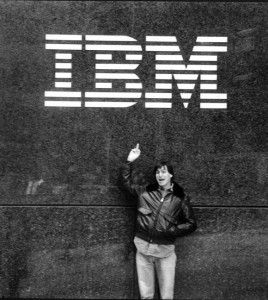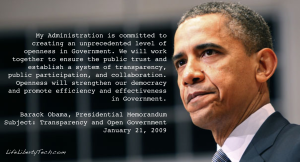A friend on Facebook posted the following:
I’d like to share some thoughts on ideas from an article I read recently (and unfortunately can’t locate at the moment).
The gist of the article is the Technology (or Internet) Revolution of the last few decades has widened the gap between the rich and non-rich much as the Industrial Revolution of the 19th Century did. Not as the result of governmental policies due to fundamental changes in how our economic system functions. For example:
* Technology has resulted in the concentration of wealth, power and technology.
* Technology has eliminated many low-skill and/or repetitive jobs that traditionally served as a way out of poverty and into the middle class.
* Technology has opened up competition for many higher-skill jobs (design, coding, journalism, automation, etc., etc.) to the global market resulting in wage stagnation for middle-class workers.
What I took away from the article is that – just as the abuses of the Industrial Revolution lead to many labor, industrial and economic reforms – the current revolution will require systemic changes to our economic framework. And, more importantly, traditional Liberal and Conservative ideologies, which are based upon the experience of the 20th Century, really aren’t equipped to provide those solutions
Any thoughts?
Any thoughts? Of course I have thoughts on this topic! But a Facebook comment simply won’t do my thoughts justice, so I told him I’d write a blog post.
The points presented obviously slant towards technology being a negatively disrupting force in the economy. Then my friend’s takeaway was that because of these negative disruptions, systemic changes will be required to our economy. I must assume he meant governmental regulations, because he then talks about liberal and conservative ideologies.
I must say that when presented in this context, the technology and Internet revolution sure does sound like a scourge on humanity! Who wouldn’t be for controlling this abomination? But of course, this is only one side of the story. Before we can discuss this topic, we should take a more balanced look.
Has technology concentrated wealth and power? Undoubtedly people have become extraordinarily wealthy from their Internet businesses. But it has also created incredible opportunities for everyday entrepreneurism that could never have been imagined before. When companies that didn’t exist before 1995 like Amazon.com can become the world’s largest book seller and topple old giants like Borders, technology has also created a more even playing field. When the Internet has basically destroyed the stranglehold the recording industry had on music, it must be talked about in the same breath as any claims of power concentration. Certainly the Internet has caused a de-concentration of power as well as any perceived concentrations.
Besides these big examples, the Internet has created entirely new career categories such as web developers, social media marketers, mobile app developers, and YouTube celebrities. Which if it is true that the Internet has eliminated low-skill and/or repetitive jobs, then we must also acknowledge the creation of new jobs. We must also accept the fact that the Internet has made it easier for entrepreneurs to find customers and therefore made it easier for non-technical businesspeople – from housekeepers to accountants – to compete against big companies.
It’s no secret competition is good for consumers. When the Internet makes it easier for small business to compete, consumers win. Not only does competition help keep costs down, but it also increases innovation and gives consumers more choices. Potentially with competition keeping costs down, wages may be affected. But while some wages may stagnate, others may increase for those who take the bull by the horns and adapt to the changes the Internet was brought forth.
So with the perspective of a more balanced viewpoint, do we really need government to “reform” our economy? Technology has transformed not only the economy, but almost all aspects of our society. The fact that this conversation started on social media and that I can publish my response on a blog that anyone in the world can read are proof alone of that. What we must realize is that regulation has side-effects. If we want to stifle the supposed negative ramifications of technological change, we need to accept that we will also dampen the positive effects that technology can bring to the economy and society.
I do agree on one of my friend’s points: that traditional political ideologies aren’t suited to provide solutions to a rapidly changing economy, especially when most politicians don’t even understand that which they would attempt to regulate. I would go so far as to say that any political ideology that says they need to control the economy is not suited to The New World of Technology.
Instead of the violent, forceful change that government brings, I trust in the natural, holistic evolution that free people bring about on their own as they adapt to change. Systemic changes have already happened and will continue to happen as the market transforms. Not through any action of government, but rather through the behavior of free people in a market that has been relatively free of regulation. The technology industry is one of the closest examples of a functioning free market that we have seen in recent history. Luckily by its nature of rapid advance, there has been little opportunity for governments to suppress it, at least in this country. Which has been a good thing because it was the technology industry that burgeoned our economy in the 1990’s and has almost single-handedly kept it afloat through the rough times of the 2000’s. That and it fundamentally changed the way we live and communicate. Certainly we must be appreciative of the positive advances that this market free of government interference has brought forth.
We must understand that we are only at the beginning of the technological advances coming. If we attempt to apply control and regulations now, based on our rudimentary understanding of technology as it exists today, we potentially strangle the benefits of technology that hasn’t even been invented yet. We threaten to stifle the advancement of modern technology much in the same way that was done in the early part of the 20th century with the heavy-handed government regulation of radio and telephone communication. This resulted in the government-sanctioned monopoly of AT&T and the concentration of power in politically-favored media companies. Ironically, this concentration of power has only started to erode because of the Internet. What a shame it would be to strangle the freedom the Internet has brought us because we are frightened of change. What a shame it would be if our fear returned us to the pre-Internet world where our information was tightly controlled by a select few from government and big corporate interests.
Bottom line, free people adapt to change. The relatively free market that technology has developed in has brought us amazing advances in our society and economic growth. Why would we want to endanger it? Attempting to control the economy amounts to playing god and not doing a very good job of it. No politician is smarter than all of us. Offering them control of the new economy is a foolhardy endeavor, certainly destined to be a so-called “cure” worse than any perceived “disease”.
 If you happen to live in the St. Louis area as I do, you no doubt are apprehensively awaiting the upcoming grand jury decision on whether Officer Darren Wilson will be charged with murdering Michael Brown. Unless you’ve been living under a rock, you know that all the local media outlets are running stories constantly reminding us that the decision is due any day now and that if a decision is made not to indict Officer Wilson, it will likely spark large scale protests and potentially more violence as was seen 3 months ago. In preparation for this event, many elected officials are calling for peace regardless of what the decision is. Even Michael Brown’s parents are asking that no violence be used to protest in their son’s name. However, conspicuously absent from these calls for peace are words from the President of the United States.
If you happen to live in the St. Louis area as I do, you no doubt are apprehensively awaiting the upcoming grand jury decision on whether Officer Darren Wilson will be charged with murdering Michael Brown. Unless you’ve been living under a rock, you know that all the local media outlets are running stories constantly reminding us that the decision is due any day now and that if a decision is made not to indict Officer Wilson, it will likely spark large scale protests and potentially more violence as was seen 3 months ago. In preparation for this event, many elected officials are calling for peace regardless of what the decision is. Even Michael Brown’s parents are asking that no violence be used to protest in their son’s name. However, conspicuously absent from these calls for peace are words from the President of the United States.








